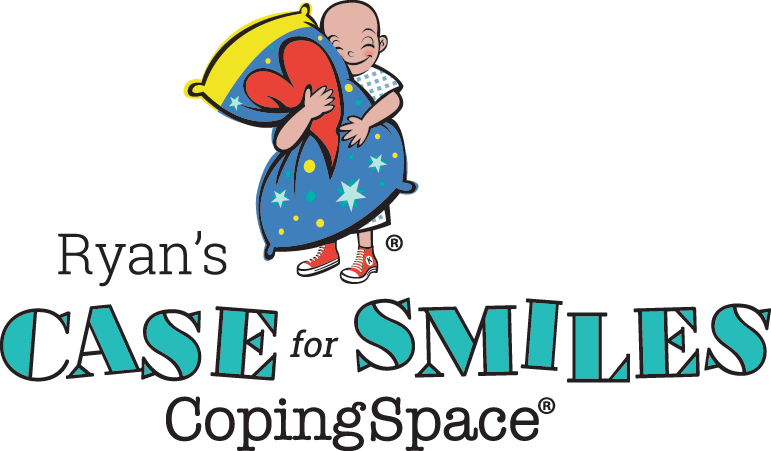BLOG
Managing Your Fear When Your Child Is Seriously Ill
October 29, 2019
 Having a child with any illness or injury, nevertheless a life-changing one, can be a terrifying experience. And as a parent, your first concern is likely how to comfort your child and help them manage their fear. You may have talked with your child life specialist and medical team, consulted friends, or poured over online resources like our Children page.
Having a child with any illness or injury, nevertheless a life-changing one, can be a terrifying experience. And as a parent, your first concern is likely how to comfort your child and help them manage their fear. You may have talked with your child life specialist and medical team, consulted friends, or poured over online resources like our Children page.
But what about your very real, very present fear? Have you found ways to manage your worry and anxiety? Dealing with your emotions may seem like a luxury, but it’s actually a very important piece of being an effective parent.
Obviously, there’s no way you won’t feel some fear, some of the time. Your concern is justifiable. But there are things you can do to address your concerns and manage the anxiety as best you can.
Below are a few ideas to get you started. You can also visit the Taking Care of You page for additional suggestions and support.
How to Cope with Anxiety When Your Child Is Ill or Injured
Learn the Facts
One of the biggest culprits of fear? The Unknown. When you don’t know the facts, it’s easy to assume the worst. For this reason, it’s important to have clear, open communication with your child’s medical team.
Be sure your child’s doctors provide regular updates, both in-person and on the phone. During these conversations, it can be helpful to have a notebook to jot down key points, as well as a list of questions that may have come up since last you spoke. Some parents also like to bring a spouse, family member or friend to act as a second set of ears.
And while it’s incredibly tempting to get all your questions answered immediately, do your best to avoid Dr. Google. It’s hard to know what information is from a reliable source. Additionally, your child is unique, and what may be true for one family, is not always true for another. You have a team of highly trained specialists on your side, focused on your child’s specific needs. They know your situation best and are the most reliable resource for information.
Talk It Out
While your child’s medical team is the best resource for medical information, they may not be able to allay all your fears. That’s where a friend, family member, religious leader or other trusted advisor can help. It can be therapeutic to talk through your worries and discuss what’s rational, and what’s not. They can also serve as a partner in brainstorming small steps you can take to address your concerns and manage anxiety.
If nothing else, it helps to know you have someone who understands, and who is on your side.
Take Care of the Basics
It may seem too simple but making sure you sleep, eat well and exercise is one of the best things you can do to help manage your emotions. We are all physical beings, and sleep deprivation, low blood sugar and lethargy really do impact your mood and ability to cope.
You likely know the basic rules but here’s a gentle reminder. Try to get 7-8 hours of sleep, eat nutritious food at regular intervals, and move your body at least a half hour a day (chores, walking and other light activity count!). You won’t be perfect every day, but even the slightest improvement can have a significant impact.
Practice Mindfulness, in Any Form
Mindfulness is a buzz word, but one that not everyone fully understands. It’s actually more than just meditation. (Though that is an incredibly helpful practice and there are plenty of classes and Apps to help get you started.) In a nutshell, mindfulness is any activity that brings your thoughts to the present moment, rather than the future or past.
Deep breathing is one easy way to access its benefits. When you feel your anxiety level rising, try taking a deep belly breath in (aim for 5-7 seconds), hold for 5 seconds, and then slowly breathe out (aim for 8-10 seconds). Doing this not only provides physical calming benefits but can keep your thoughts in the here and now.
Doing chores, crafts, exercising, or any other activity you enjoy can also be an act of mindfulness. All you have to do to transform your favorite past-time into a meditation practice is to slow down and seek to stay in the present moment. Thoughts and fears will come up. When they do, simply notice and describe them, then bring your attention back to what you are doing.
Find Other Parents and Support Groups
While friends and family do their best to support you, many parents of ill and injured children like to join groups of others in similar situations who “just get it”. Some hospitals and clinics run regular meet-ups which you can attend. They will also have suggestions of local and national organizations devoted to your child’s specific condition.
Online resources can be another way to connect. There you can find other parents to commiserate with and share tips for dealing with it all, anywhere and at any time of day. Examples include condition-specific Facebook groups or Momcology. Just be sure to get all medical advice from your doctors.
One note: While support groups are great for some, there are others that find them more stressful than helpful. You may fear hearing bad news about a friend’s child, and what that might mean for yours. If this is the case, seek out other areas of emotional support.
Take Advantage of Professionals
If you find your fears interfering with your life for an extended period of time, it may be helpful to seek additional support. There is a vast network of counselors, psychologists, psychiatrists and other mental health professionals specializing in managing fear, stress and anxiety. Take advantage of it! A professional can help you talk through and reframe your fears, as well as create a plan to help you cope.
There is no shame in seeing a mental health practitioner– in fact, asking for help is huge sign of strength. To get started, ask your or your child’s doctor for referrals. You can also reach out to friends, family or your insurance company for additional ideas. And remember, finding a good therapist can be a little like dating. So, if the first isn’t a match, don’t give up. There’s someone out there for everyone!
